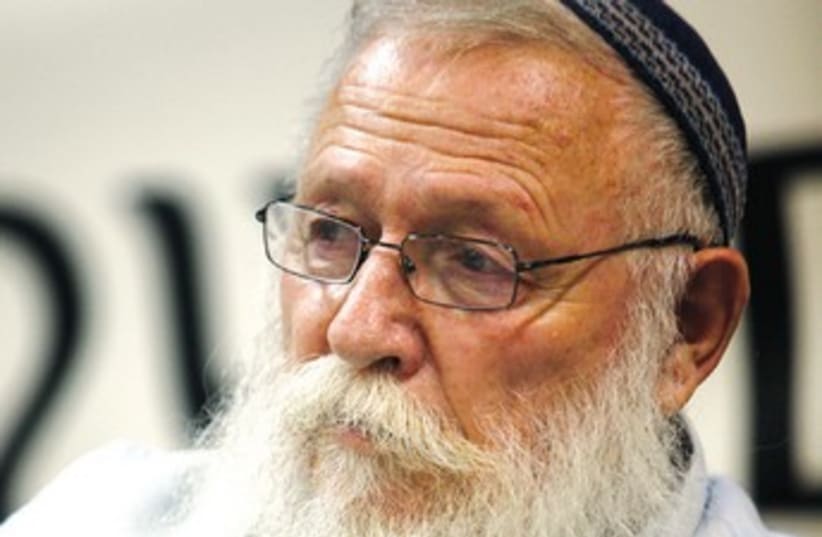The writer is dean of the Faculty of Humanities and Social Sciences at Ben- Gurion University. The comments expressed are his alone.
Borderline Views: Israel Prize for Druckman
There is no one more worthy of receiving the prestigious Israel Prize for lifetime achievement than Rabbi Druckman.

The writer is dean of the Faculty of Humanities and Social Sciences at Ben- Gurion University. The comments expressed are his alone.